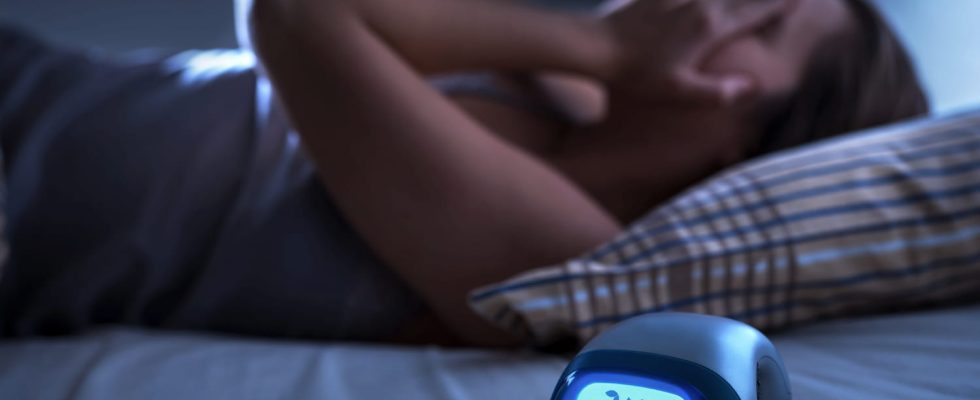Nocturnal micro-awakenings are physiological, but why do they always occur at the same time?
THE nocturnal micro-awakenings are frequent and physiological. Most often, they are linked to the cyclical organization of sleep. “At night, we go on 4 to 6 cycles sleep that includes deep slow-wave sleep and paradoxical sleep, the proportions of which vary between the beginning and the end of the night. In adults, a sleep cycle lasts approximately 90 minutes. At the end of each sleep cycle, we wake up. But, it is generally a micro-awakening lasting 15 to 30 seconds which we do not remember because it is so short”, tells us Dr Marc Rey, neurologist specializing in sleep and president of the National Institute of Sleep and Vigilance (INSV). Sometimes these awakenings last a little longer and are an opportunity to turn around, to drink or go to the toilet. In either case, there is nothing abnormal.
The end of a sleep cycle?
“It feels like we’re in a lighter sleep.”
“The 4 a.m. alarm clock signals the end of 3rd or 4th sleep cycle for an individual who goes to bed between 11 p.m. and midnight” informs the sleep neurologist. If slow-wave sleep associated with the first sleep cycles corresponds to the longest sleep repairer and makes it possible to consolidate learning, Morning cycles contain “less sleep pressure”. Result ; the awakening will possibly be longer and we will memorize it. “4 a.m. corresponds to the end of a cycle, but we know that morning cycles are less rich in deep slow-wave sleep or even devoid of it. Consequently, we have the impression of being in lighter sleep and this, all the more so because we also have more paradoxical sleep in the morning cycles, which can give us the impression of dreaming or of being in an in-between. There is absolutely nothing pathological about it.” reassures our expert.
Wake-ups lasting several minutes?
If the awakenings last every time more than 30 minutes and it is very difficult to go back to sleep, it becomes pathological. A lack of sleep can be responsible for mood disorders and of depressive syndromesof a weight gain as well as a weakening of the immune system. Hence the importance of consulting a health professional to find the causes of these untimely nocturnal awakenings. Very often, a poor sleep hygiene is in question. Go to bed at a regular time, avoid stimulants (alcohol, tea, coffee) after 5 p.m., limit daytime naps, avoid heavy meals in the evening, create an environment conducive to quality sleep (comfortable bedding, darkness, absence noise), engaging in calm activities before sleeping, or turning off screens two hours before going to bed help regulate sleep. Finally, exposure to light too bright in the evening because that disrupts the circadian rhythm and disrupts falling asleep.
Thanks to Dr Marc Rey, neurologist specializing in sleep, president of the National Institute of Sleep and Vigilance (INSV)
